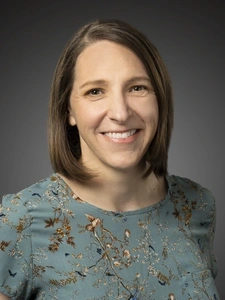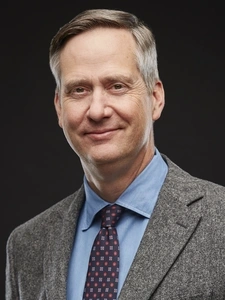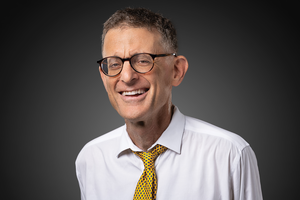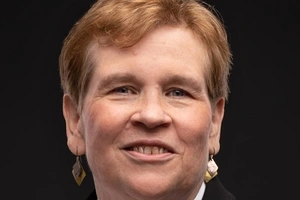This 12-month master’s program prepares current and aspiring university administrators worldwide to become skilled, impactful leaders. Through interactive online learning in an engaging cohort model, you’ll connect with peers and internationally recognized higher education experts.
Higher education stands at the center of the global knowledge economy, facing increasingly complex challenges and opportunities. The Global Higher Education Management, M.S.Ed. program is a transformative online master's degree. It is designed for early-career professionals to senior-level higher education professionals who are seeking to lead institutions into the future. This program equips you with the strategies, insights, and tools to strengthen higher education in your local context while engaging with a powerful global network.
Program Details
-
Summer Entry Term
-
Executive* Enrollment Format
-
1 Year Duration
-
Online Modality
Overview
This 12-month, online program is designed for the working professional with a mix of asynchronous and required synchronous sessions, allowing students to work independently and in collaboration across countries, continents, and time zones.
This program blends practical strategies, global insights, and collaborative learning to prepare you to lead with vision and impact. The curriculum connects theory to practice and focuses on solving real-world institutional challenges, with action-oriented modules that equip you to lead organizational change, drive innovation, and strengthen institutional leadership.
Who Should Apply?
This program is ideal for current and aspiring university administrators from around the world. While most students have at least two years of professional experience, participants have ranged from early-career professionals to those with twenty years in the field—creating a dynamic, collaborative learning community.
- Professionals currently working in universities who want to advance their careers.
- Academics seeking to transition into university management roles.
- Professionals from other sectors interested in moving into higher education.
- Individuals in organizations connected to universities, such as consultancies, ed tech firms, government agencies, or accreditation and quality assurance bodies.
Take the Next Step
Application Requirements and Deadlines Tuition and Fees Financial Aid

Hear From Our Alumni
“I chose this program for its strong theoretical foundation and real-world application. It’s been a game-changer for my career—sharpening my leadership and management skills in higher education.”
Yangju Yi, M.S.Ed., GED'24
Senior Policymaker, Head of Higher Education Policy Department, Ministry of Education of Korea
Upcoming Events
-
Time: 8:00 AM - 9:00 AM EST | Location: Online
-
Time: 12:00 PM - 1:00 PM EDT | Location: Online
-
Time: 7:00 PM - 8:00 PM EDT | Location: Online
Curriculum
This 10-course online master’s degree uses a condensed, modular format in which students take a structured sequence of modules as a cohort. Three modules equate to one course, and the degree program requires ten courses. The program is geared toward working adults, but it is a full-time degree program. All coursework and instruction are conducted in English.
The program culminates in a capstone project, empowering you to tackle a pressing problem or opportunity within your professional context–providing you the opportunity to make an impact within your place of work. Examples of past projects include:
- Supporting immigrant learners
- Improving staff mental well-being
- Expanding online program enrollments
- Developing vocational trade pipelines
- Enhancing support for international staff at branch campuses
For more information on courses and requirements, visit the Global Higher Education Management, M.S.Ed. program in the University Catalog.
Do you have questions about the plan of study?
We're happy to help! Contact the Program Director, Peter Eckel, GSE-GlobalHEManagement@gse.upenn.edu
The University of Pennsylvania is accredited by the Middle States Commission on Higher Education (MSCHE), 3624 Market Street, Philadelphia, PA 19104. (267) 284-5000. www.msche.org. The MSCHE is an institutional accrediting agency recognized by the US Secretary of Education and the Council for Higher Education Accreditation (CHEA). Information about Penn’s accreditation with MSCHE is available here.
To make a complaint to MSCHE, visit this website.
For more information about Penn’s accreditation status, visit the Penn Provost website.
Is This Program Right for You?
Complete a brief self-assessment to help determine if this program is the right fit for you.
Outcomes
Global Higher Education Management program graduates are equipped to step confidently into senior leadership roles in higher education, including positions such as department chair, dean, associate dean, or director in areas like international affairs, research, quality assurance, and teaching and learning.
The also supports a transition from academic to administrative leadership, equipping participants with the skills and insights needed to lead effectively in complex university environments.
Career progression among alumni is strong: 80% of the initial cohort have either been promoted or moved into more advanced positions elsewhere. Additionally, the program provides a strong foundation for further academic study—one-third of alumni go on to pursue a doctoral degree.
Apply Now
A graduate degree from Penn GSE opens up whole new worlds, intellectually as well as professionally. If you are a passionate, innovative, impactful leader—or aspire to be one—Penn GSE is the place for you.
Affiliated Faculty
Contact Us
Do you have questions about the application, financial aid, or requirements? We're happy to help!

































